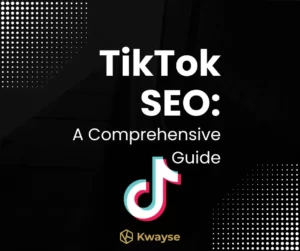Definition of SEO
Search Engine Optimization (SEO) is the process of improving a website’s visibility and ranking on search engine results pages (SERPs) by optimizing its content, structure, and other elements. The primary goal of SEO is to increase organic (non-paid) traffic to a website, leading to higher conversions and sales.
Importance of SEO
In today’s competitive online landscape, having a strong web presence is crucial for businesses. SEO plays a significant role in driving organic traffic and improving a site’s credibility and authority. By optimizing your website for search engines, you’re making it easier for potential customers to find you and learn about your products or services.
Organic Search vs Paid Search
Organic search refers to the unpaid results that appear on SERPs when users search for specific keywords. These results are ranked based on their relevance to the user’s query and other factors. In contrast, paid search involves paying for ad placements that appear above or alongside organic search results. While both methods can drive traffic to your website, organic search traffic is typically more sustainable and cost-effective in the long run.
How Search Engines Work
Crawling, Indexing, and Ranking
Search engines, like Google, use automated bots called crawlers or spiders to discover and index new web pages. Crawlers follow links on existing web pages to find new content, which is then indexed and stored in a massive database. When a user enters a query, the search engine algorithm sorts through the indexed pages and ranks them based on their relevance, quality, and other factors.
Search Engine Algorithms
Search engines use complex algorithms to determine which pages are the most relevant and valuable to users. These algorithms consider a variety of factors, such as keyword usage, page quality, user experience, and site authority. It’s essential to stay up-to-date with the latest algorithm updates to ensure your SEO strategy aligns with current best practices.
Key Components of SEO
On-Page SEO
On-page SEO involves optimizing the content and HTML elements of individual web pages. This includes:
Keyword Research
The foundation of any successful SEO strategy is thorough keyword research. Identifying the right keywords to target ensures your content aligns with what users are searching for and increases the likelihood of ranking higher on SERPs.
Content Creation
Creating high-quality, engaging, and informative content is crucial for SEO success. Content should be written in a conversational tone, utilizing personal pronouns and keeping it simple while engaging the reader. Using active voice, incorporating rhetorical questions, and incorporating analogies and metaphors can also help make your content more appealing.
Meta Tags and HTML
Optimizing meta tags (such as title tags and meta descriptions) and using header tags (H1, H2, H3, etc.) appropriately can improve your on-page SEO by providing search engines with more information about your content.
Off-Page SEO
Off-page SEO focuses on activities that happen outside of your website but still impact your search engine rankings. Key components of off-page SEO include:
Backlinks
Backlinks are links from other websites pointing to your site. They act as votes of confidence, signaling to search engines that your content is valuable and authoritative. Building a diverse and high-quality backlink profile is essential for off-page SEO.
Social Signals
Social signals, such as likes, shares, and comments on social media platforms, can indirectly impact your SEO efforts. While not a direct ranking factor, a strong social media presence can increase brand awareness and drive more traffic to your website.
Technical SEO
Technical SEO involves optimizing the backend structure and infrastructure of your website to improve its performance in search engines. Key aspects of technical SEO include:
Site Speed
A fast-loading website is essential for a positive user experience and better search engine rankings. Optimizing site speed involves addressing issues like large image files, inefficient code, and server performance.
Mobile Responsiveness
With more people using mobile devices to access the internet, having a mobile-friendly website is crucial. Responsive web design ensures your site looks and functions well on all devices, providing a seamless experience for users and improving your SEO performance.
Measuring SEO Success
Key Performance Indicators (KPIs)
To gauge the success of your SEO efforts, it’s essential to track key performance indicators (KPIs) like organic traffic, keyword rankings, and conversion rates. Monitoring these metrics can help you refine your SEO strategy and make data-driven decisions.
SEO Tools
Various SEO tools, such as Google Analytics, Google Search Console, and SEMrush, can help you monitor your website’s performance and identify areas for improvement.
Try a 7-day free trial of SEMrush
Conclusion
Understanding the fundamentals of SEO is essential for businesses looking to improve their online presence and increase organic traffic. By focusing on on-page, off-page, and technical SEO, you can optimize your website to rank higher on search engine results pages and attract more potential customers.
FAQs
- What is the difference between on-page and off-page SEO? On-page SEO focuses on optimizing the content and HTML elements of individual web pages, while off-page SEO deals with activities outside your website that impact your search engine rankings.
- How long does it take to see results from SEO? SEO is a long-term strategy, and results can take anywhere from a few weeks to several months or more, depending on the competitiveness of your industry and the effectiveness of your efforts.
- Is keyword stuffing a good SEO practice? No, keyword stuffing is an outdated and frowned-upon SEO practice. Instead, focus on creating high-quality, engaging content that naturally includes your target keywords.
- Can social media help my SEO efforts? While social signals are not a direct ranking factor, having a strong social media presence can increase brand awareness and drive more traffic to your website, indirectly benefiting your SEO.
- What is the role of backlinks in SEO? Backlinks act as votes of confidence from other websites, signaling to search engines that your content is valuable and authoritative. Building a diverse and high-quality backlink profile is essential for off-page SEO.
Need help with SEO for your website?
Don’t hesitate to reach out for a discovery call with our experienced team. Together, we can craft the perfect strategy to boost your online presence and drive organic traffic. Schedule your call today and unlock your website’s full potential!



